Choosing the right online education platform is pivotal for a successful learning experience, whether you’re an educator or a student. A user-friendly platform can transform online learning into an enjoyable and effective journey, while a cumbersome one can lead to frustration and hinder the learning process. For educators, the ideal platform simplifies teaching, allowing you to concentrate on your expertise: delivering impactful knowledge.
The sheer volume of Online Education Platforms available today can make selecting the perfect one a daunting task. It’s not just about features or pricing; it’s about finding a platform that aligns with your specific learning or teaching objectives. This guide is designed to navigate you through the top online education platforms of 2025, highlighting their strengths and helping you make an informed decision.
Quick Guide: Best Digital Learning Platforms in 2025
Here’s a snapshot of the leading online learning platforms we’ll explore in detail:
| Top Digital Learning Platforms for 2025 |
|---|
| Platform |
| Thinkific |
| Coursera |
| LinkedIn Learning |
| SkillShare |
| edX |
| OpenLearning |
| Udemy |
| Treehouse |
| MasterClass |
| Khan Academy |
The Value Proposition of Online Learning Platforms
Online education platforms are reshaping the landscape of modern learning, offering a dynamic and accessible alternative to traditional education. As highlighted in the paper “Online Learning Platforms: Reconstructing Modern Higher Education,” these platforms are not just a trend but a fundamental shift in how education is delivered and consumed. The key advantages of online learning platforms include:
- Enhanced Accessibility: Breaking down geographical barriers, online platforms provide education to anyone with an internet connection, regardless of location or background.
- Reduced Educational Costs: Often more affordable than traditional institutions, online learning platforms eliminate expenses related to commuting, accommodation, and physical resources.
- Modular and Flexible Content: Online courses are typically structured into modules, allowing for focused learning and easier content updates to keep pace with evolving industries.
- Flexible Learning Schedules: Students can learn at their own pace and time, accommodating diverse schedules and learning styles, making education compatible with work and other commitments.
- Up-to-Date Knowledge: Online platforms can rapidly update course content, ensuring learners receive the most current information and skills relevant to today’s fast-paced world.
- Knowledge Assessment Tools: Platforms offer diverse methods for assessing learning, from automated quizzes to peer reviews, providing comprehensive feedback and knowledge validation.
Key Considerations When Choosing an Online Learning Platform
Selecting the ideal online education platform requires careful evaluation of several key factors to ensure it meets your specific needs, whether you’re a learner or an educator looking to monetize your expertise. The crucial elements to consider are structure, content, community, and pricing.
1. Platform Structure and User Experience
The structure of an online learning platform significantly impacts the learning experience. A well-structured platform enhances learning effectiveness and ensures smooth delivery of educational content. Unlike unstructured resources like YouTube, a dedicated learning platform offers a progressive and organized environment that facilitates independent learning. Consider these structural aspects:
- Ease of Navigation: Is the platform intuitive and easy to navigate for both instructors and students?
- Course Organization: How are courses structured? Is there a clear progression and logical flow of content?
- User Interface (UI) and User Experience (UX): Is the platform visually appealing and user-friendly? A clean and modern interface can significantly improve engagement.
- Mobile Accessibility: Is the platform mobile-friendly or does it offer a dedicated mobile app for learning on the go?
2. Course Content and Subject Matter Depth
The availability and quality of course content are paramount. The content should align with your learning objectives or teaching specialization. Each online degree program or course curriculum approaches subjects uniquely. For instance, in fields like web development or programming, the breadth of principles, languages, and frameworks necessitates specialized courses. When evaluating content, consider:
- Course Catalog Diversity: Does the platform offer a wide range of courses in your area of interest?
- Content Quality and Relevance: Is the content current, accurate, and taught by credible instructors?
- Specialization Options: Does the platform offer specialized courses or learning paths for in-depth knowledge acquisition?
- Learning Resources: Are there supplementary materials like downloadable resources, templates, or reading lists?
3. Community and Interaction Opportunities
A strong learning community enriches the online education experience. Interaction with peers and instructors fosters a collaborative environment that enhances understanding and motivation. Community features can:
- Peer Support: Facilitate interaction among students for collaborative learning and problem-solving.
- Instructor Interaction: Provide channels for direct communication with instructors for questions and feedback.
- Networking Opportunities: Enable learners to connect with professionals and peers in their field of interest.
- Engagement Tools: Features like forums, group projects, and live sessions can build a sense of community.
Learning communities empower brainstorming, encourage independent problem-solving, and cultivate enthusiasm for the subject matter.
4. Pricing Models and Value for Money
Pricing is a critical factor in choosing an online learning platform. While many free courses are available, paid courses often offer higher quality content and more engaging learning experiences. Consider the different pricing models and what they offer:
- Free Courses: Platforms like Khan Academy offer comprehensive free educational resources.
- Subscription Models: Platforms like LinkedIn Learning and Skillshare offer monthly or annual subscriptions for access to a wide range of courses.
- Per-Course Purchases: Platforms like Udemy allow you to buy individual courses as needed.
- Certificate and Degree Programs: Platforms like Coursera and edX offer certifications and degrees that come with specific pricing structures.
- Free Trials and Refund Policies: Some platforms offer free trials or money-back guarantees to help you assess the platform’s suitability.
When evaluating pricing, consider the value provided by the course content, the instructor’s expertise, and the learning resources included. For educators, understand the platform’s fee structure, including transaction fees or monthly charges.
Online Learning Platforms vs. Learning Management Systems (LMS)
It’s important to distinguish between online learning platforms and Learning Management Systems (LMS). While often used interchangeably, they serve different primary functions.
- Online Learning Platform: This is typically a student-facing environment where learners directly access educational content, engage in courses, and acquire new skills. Think of platforms like Udemy or Coursera.
- Learning Management System (LMS): An LMS is a back-end system designed for institutions or organizations to manage, deliver, and track educational courses. It provides tools for content creation, assessment, student management, and reporting. Examples include Moodle, Blackboard, and Canvas.
In essence, an online learning platform focuses on the user experience of learning and content accessibility, while an LMS provides the administrative and management infrastructure for educational programs. Some platforms, like Thinkific, bridge this gap by offering robust course creation and management tools alongside a user-friendly learning environment.
Top 10 Online Education Platforms for Instructors and Learners in Detail
Let’s delve deeper into the top 10 online education platforms, exploring their unique strengths and features.
1. Thinkific: Best for Custom Course Creation and Digital Products
G2 Rating: 4.7/5
Thinkific stands out as a leading platform for creators looking to build, market, and sell online courses and digital products. Its versatility allows users to monetize various digital offerings, from comprehensive online courses to ebooks and membership sites. Thinkific provides course creators with complete control over their content and branding, unlike marketplace-dependent platforms.
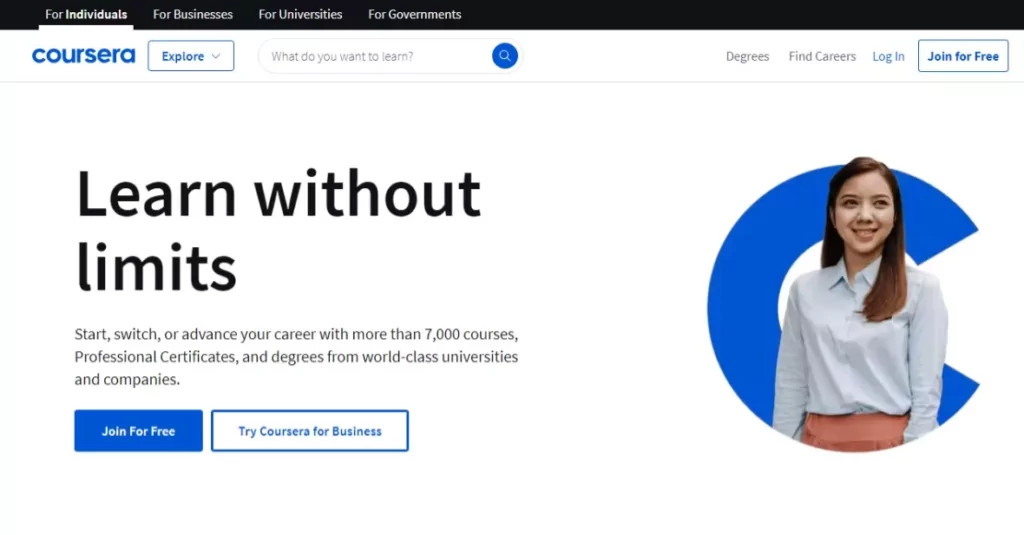 Thinkific User Review
Thinkific User Review
Alt Text: Thinkific user Amanda Schonberg testimonial highlighting the platform’s ease of use for creating and managing online courses.
Key Features:
- White-Label Mobile App: Offer a branded mobile learning experience to students.
- Blended Learning Support: Combine online learning with in-person or live components.
- AI-Powered Course Landing Pages: Quickly generate effective landing pages to promote courses.
- Comprehensive Marketing Tools: Integrations with email marketing and other tools to reach and engage your audience.
- Flexible Course Builder: Drag-and-drop interface for easy course creation, no coding required.
Pricing:
Thinkific offers a free plan to get started and explore the platform. Paid plans, starting at $149 per month, unlock advanced features for engagement, tracking, and monetization. Course creators set their own prices for courses on the platform.
Thinkific User Review:
“It was just so easy. I decided to stick with it, and I have never had any problems. If I’d known that platforms like Thinkific were available to me, I think I could have handled it better on my own from the beginning.” – Amanda Schonberg, Baking Business Success Story
2. Coursera: Best for Accredited Certificates and Degrees
G2 Rating: 4.5/5
Coursera partners with top-tier universities and institutions worldwide, offering accredited certificates, degrees, and Specializations. It’s a premier destination for learners seeking formal academic credentials and professional development from reputable sources.
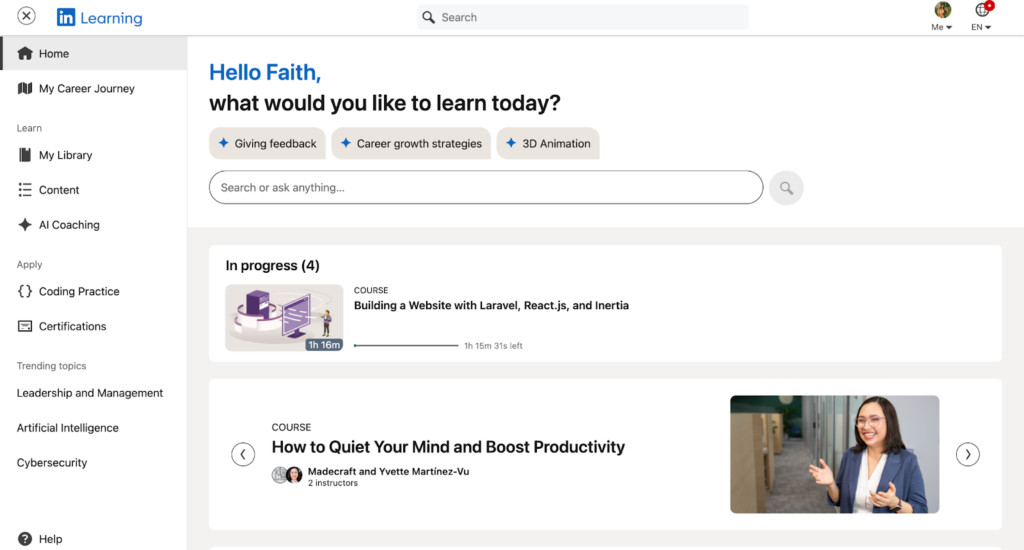 Coursera User Review
Coursera User Review
Alt Text: Coursera user Kenia R. testimonial emphasizing the platform’s flexibility for working mothers and remote learning opportunities.
Top Features:
- Multilingual Support: Courses and platform interface available in multiple languages.
- Mobile Apps for On-Demand Learning: Learn anytime, anywhere with mobile apps.
- Offline Course Access: Download course materials for learning without internet connectivity.
- University-Backed Credentials: Earn certificates and degrees recognized by employers globally.
- Diverse Subject Areas: From technology and business to arts and humanities, Coursera covers a vast range of disciplines.
Pricing:
Coursera offers many courses for free audit. Paid courses start at $9.99, with certificate courses from $39 and degree programs from $2,000. Subscription options are also available for broader access, but may not include degree programs.
Coursera User Review:
“Being a mother – especially a working mother means I’m constantly trying to juggle my schedule, my kids’ schedules, and work. I am very grateful for the flexible and remote learning programs that Coursera has to offer.” – Kenia R.
3. LinkedIn Learning: Best for Professional Skill-Building
G2 Score: 4.4/5
LinkedIn Learning is integrated within the LinkedIn professional network, focusing on career development and skill enhancement. It offers video courses taught by industry experts in business, technology, and creative fields, making it ideal for professionals seeking to advance their careers.
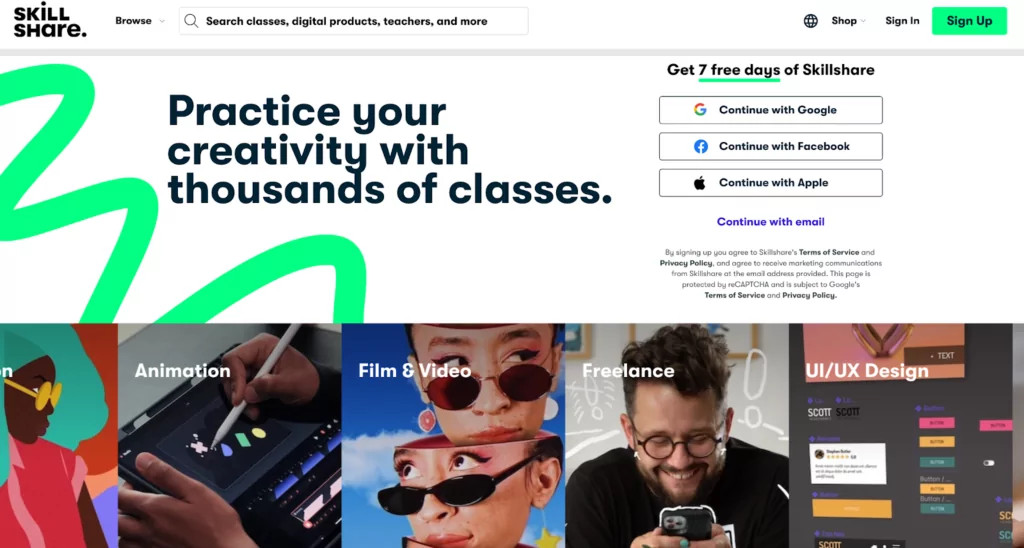 LinkedIn Learning User Review
LinkedIn Learning User Review
Alt Text: LinkedIn Learning user Stefanie Reich testimonial discussing how CDW uses the platform to foster a learning culture and enhance employee skills.
Top Features:
- AI-Powered Coaching: Personalized guidance and recommendations based on learning goals.
- Personalized Learning Paths: Tailored learning plans to meet individual career objectives.
- AI-Assisted Content Creation: Tools to help create engaging and effective learning content.
- LinkedIn Integration: Showcase completed courses and certificates directly on your LinkedIn profile.
- Vast Library of Professional Development Courses: Covering leadership, marketing, technology, design, and more.
LinkedIn Learning Pricing:
Individual courses range from $20 to $50. Subscriptions are priced at $39.99 monthly or $239.88 annually, which includes LinkedIn Premium features. Bulk pricing is available for organizations.
LinkedIn Learning User Review:
“Step by step, we’re leveraging LinkedIn Learning to exchange knowledge and create a more open learning culture,” said Stefanie. “We’re changing the learning mindset to teach our coworkers how they can use LinkedIn Learning to build up their skills and grow their careers.” – Stefanie Reich, CDW
4. Skillshare: Best for Creative Skills and Projects
G2 Rating: 3.4/5
Skillshare is a vibrant platform focused on creative skills, project-based learning, and community interaction. It’s particularly popular among artists, designers, and makers seeking to learn practical skills from industry professionals.
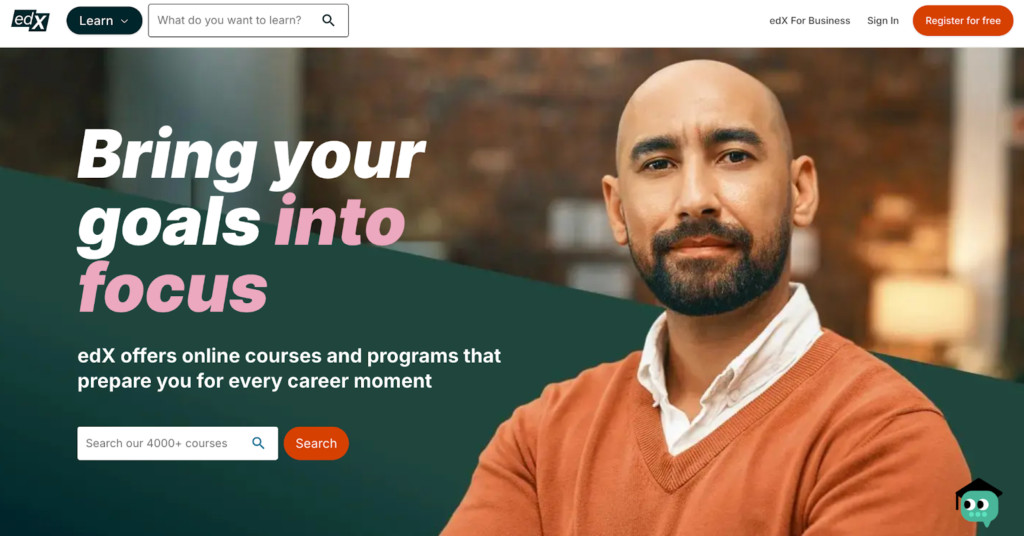 Skillshare User Review
Skillshare User Review
Alt Text: Skillshare user Elizapainter review praising the platform’s wide range of subjects, different skill levels, and high-quality teachers.
Key Features:
- Course Monetization: Opportunities for instructors to earn revenue from their courses.
- Pre-Recorded Classes: Learn at your own pace with on-demand video lessons.
- Hands-On Teacher Support Programs: Resources and programs to support instructors in creating engaging courses.
- Project-Based Learning: Courses often incorporate practical projects to apply learned skills.
- Creative Community: Connect with fellow creatives and share your work.
Skillshare Pricing:
Pricing varies by region, but generally, expect to pay around $168 per year or $14 per month for premium access.
Skillshare User Review:
“I absolutely love Skillshare! There are a huge range of subjects to choose from with different levels usually available. The rating system is terrific for picking teachers. I’ve also never had a bad teacher—of the classes I’ve taken, the teachers have all been wonderful. Can’t recommend Skillshare enough!” – Elizapainter
5. edX: Best for Formal Education and Academic Rigor
G2 rating: 4.5/5
edX is renowned for its academically rigorous courses from top universities like Harvard and MIT. It’s ideal for learners seeking formal education and in-depth knowledge in STEM and various other subjects, often at a lower cost than traditional in-person programs.
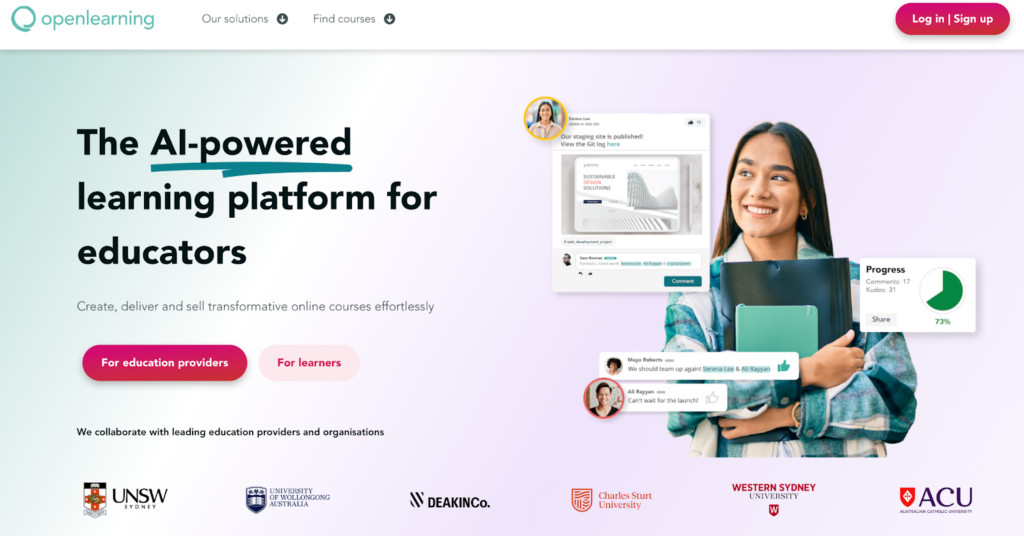 edX User Review
edX User Review
Alt Text: edX user Louise review highlighting the platform’s easy-to-follow courses and practical application of learned skills in project management.
Top Features:
- Digital Certifications: Earn verified certificates to demonstrate course completion and expertise.
- Admin Analytics Dashboards: Tools for institutions to track learner progress and course effectiveness.
- Industry Partnerships: Collaborations with industry leaders to provide relevant and career-focused content.
- University-Level Courses: Access to courses developed and taught by leading universities worldwide.
- STEM Focus: Strong emphasis on science, technology, engineering, and mathematics courses.
edX Pricing:
Many courses are available for free without certificates. Certificate-bearing courses range from $50 to $300, while full degree programs typically start at $1,000 or higher.
edX User Review:
“edX has a wide range of courses that are easy to follow and genuinely useful. I just finished a course in Project Management, and it’s already making a difference at work.” – Louise
6. OpenLearning: Best for Community and Micro-credentials
G2 Score: 4.6/5
OpenLearning distinguishes itself with a strong emphasis on community-driven learning, collaboration, and interaction. It’s particularly popular in Australia and offers micro-credentials that can be applied towards university degrees, making it a valuable platform for professional development and academic advancement.
Alt Text: OpenLearning user Professor Valerie Peachey testimonial praising the platform’s support for course development, marketing, and technical assistance.
Top Features:
- Learner Progress Tracking: Monitor individual student progress and engagement.
- Course Completion Tracking: Automate tracking of course completion and certification.
- Automatic Grading for Quizzes: Streamline assessment with automated quiz grading.
- Community-Focused Design: Features that encourage interaction, collaboration, and peer learning.
- Micro-credentials: Earn stackable credentials that can contribute to formal qualifications.
Pricing:
Free courses are available. Micro-credential courses range from $150 to $500. Course creation for educators starts at $900 per year.
OpenLearning User Review:
“The taster team at CSU has had unbelievable support from the OpenLearning team. Whether it involved suggesting ways to improve our search results, creating a results-oriented marketing campaign, developing creative and clean online modules, responding to any technical requests, or providing input and feedback into a myriad of questions, OpenLearning has been there for us.” – Professor Valerie Peachey, CSU
7. Udemy: Best for Course Variety and Affordability
G2 Rating: 4.5/5
Udemy boasts the largest course selection among online education platforms, covering an extensive range of topics from personal development to professional skills. Its pay-per-course model makes it highly accessible and affordable for learners to pick and choose specific skills they need.
Alt Text: Udemy Reviews, edshelf testimonial emphasizing the platform’s global accessibility, diverse expert instructors, and affordable course pricing.
Top Features:
- Multi-Format Lectures: Courses can include video, text, presentations, and other formats.
- Live Course and Coaching Sessions: Some courses offer live interactive elements.
- Free Trials, Upsells, and Cross-sells: Opportunities to explore courses and access additional content.
- Vast Course Marketplace: Millions of courses across virtually every subject imaginable.
- Affordable Pricing: Courses frequently offered at promotional prices, making learning accessible to a wide audience.
Pricing:
Courses are sold individually, ranging from approximately $10 to $200. Udemy subscriptions are available but may not include all courses.
Udemy User Review:
“The beauty of Udemy is that anyone, anywhere with an internet connection can learn from the world’s experts. Most courses are taught on demand, meaning you can take them at your own pace, and every course includes a discussion board where you can interact with the instructor and your fellow students. The best part is that most courses are free(!) … and even the paid courses cost far less than what you’d pay at a local college or university.” – Udemy Reviews, edshelf
8. Treehouse: Best for Coding and Development Skills
G2 Review: 4.3/5
Treehouse is specifically designed for learning to code and web development skills in an interactive and engaging way. Courses are structured into learning tracks, offering progressive learning paths in areas like front-end development, cybersecurity, and app development.
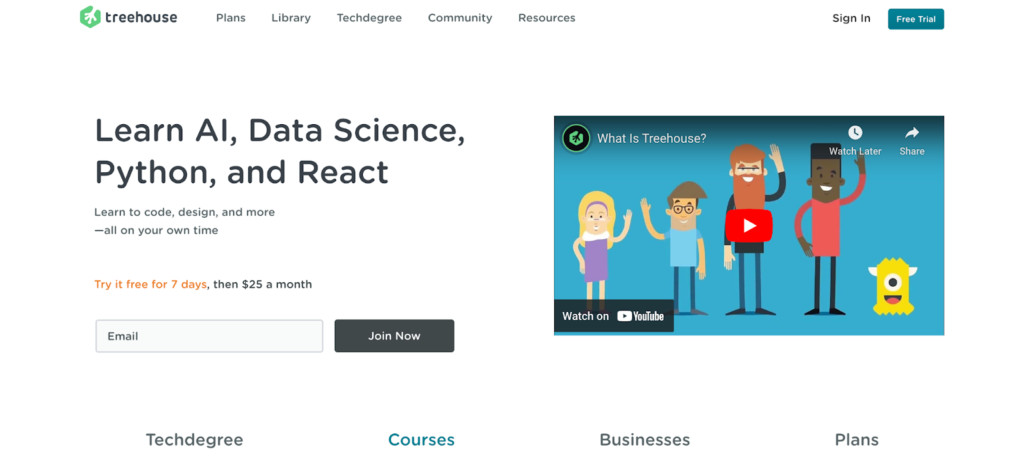 Treehouse User Review
Treehouse User Review
Alt Text: Treehouse platform interface showcasing coding lessons with interactive exercises and progress tracking.
Top Features:
- Customized Learning Programs: Tailored learning paths to match individual career goals.
- Interactive Learning: Hands-on coding challenges, quizzes, and projects for active learning.
- Community-Based Learning: Forums and communities to connect with fellow learners and instructors.
- Structured Learning Tracks: Organized paths to guide learners through specific tech skills.
- Focus on Tech Skills: Specialization in coding, web development, design, and related fields.
Pricing:
Regular memberships are $25 per month or $250 per year. Techdegree programs, which include more structured learning and certifications, start at $49 per month.
Treehouse User Review:
“Treehouse has such a variety of learning, and the easy-to-follow videos, challenges, and practices are fantastic. The community is amazing, especially in the Techdegrees.” – Claire Tregunna
9. MasterClass: Best for Expert-Led Courses and Celebrity Instruction
G2 Score: 4.5/5
MasterClass offers a unique learning experience by featuring courses taught by world-renowned experts and celebrities in their respective fields. Learn cooking from Gordon Ramsay, filmmaking from Martin Scorsese, and writing from Margaret Atwood. It’s ideal for learners seeking inspiration and insights directly from industry icons.
 MasterClass User Review
MasterClass User Review
Alt Text: MasterClass platform showcasing celebrity instructors like Gordon Ramsay and their course offerings.
Top Features:
- Simple Content Monetization: For instructors who are part of the MasterClass platform.
- Course Streaming Service: Access courses on-demand via streaming video.
- Bite-Sized Learning: Lessons are often divided into shorter, easily digestible segments.
- High-Production Quality: Cinematic and engaging video production for an immersive learning experience.
- Expert Instructors: Learn from the best in the world in various creative and professional fields.
Pricing:
MasterClass is billed annually and starts at $10 per month for an Individual plan, with options for Duo and Family plans for multiple devices.
MasterClass User Review:
“Masterclass is amazing! The instructors are top experts, and the lessons are both inspiring and practical. The platform is user-friendly, and the video lessons are so engaging. I really can’t fault Masterclass!” – Jasmine
10. Khan Academy: Best for Free Foundational Education
G2 Rating: 4.5/5
Khan Academy is a non-profit organization offering completely free educational resources, primarily focused on K-12 subjects like math, science, economics, and humanities. It’s an invaluable resource for students, parents, and lifelong learners seeking foundational knowledge without any cost.
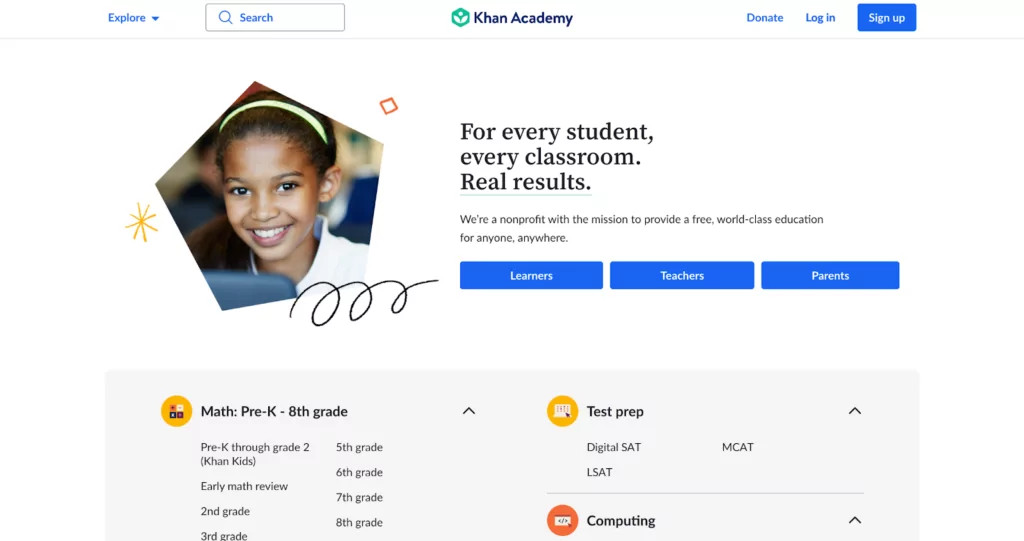 Khan Academy User Review
Khan Academy User Review
Alt Text: Khan Academy platform interface showing math lessons and exercises for students of various ages.
Top Features:
- Assign Content to Students: Tools for teachers and parents to assign lessons and track student progress.
- Digital Certifications: Earn badges and recognition for completing courses and mastering skills.
- Content Gamification Support: Engaging elements like points and badges to motivate learners.
- Free and Accessible: All content is free and available to anyone with internet access.
- Comprehensive Subject Coverage: Extensive resources across core academic subjects.
Pricing:
Khan Academy is entirely free as a non-profit educational resource.
Khan Academy User Review:
“Fantastic resource for all! I’m so very impressed with the extensive content available to everyone for free via Khan Academy. What a gift!” – Caroline Williams
Monetizing Your Expertise on Online Education Platforms
Online education platforms not only offer vast learning opportunities but also empower individuals to share their knowledge and generate income by creating and selling their own courses. If you possess valuable skills and expertise, you can leverage these platforms to reach a global audience and monetize your knowledge.
Tips for Monetizing Your Content:
- Identify Your Profitable Skills: Reflect on your areas of expertise and skills that are in demand and teachable online.
- Understand Learner Needs: Research what topics people are eager to learn and identify gaps in the existing course market.
- Structure Your Course Effectively: Plan a logical and engaging course structure with clear learning objectives and modules.
- Determine Your Course Pricing: Research comparable courses and pricing models to set a competitive and profitable price.
- Market Your Course Strategically: Utilize social media, email marketing, and platform-specific promotional tools to reach your target audience.
- Gather Student Feedback: Actively seek feedback from your students to understand their needs and improve your course content.
- Continuously Optimize and Update: Regularly refresh your course content to keep it current, relevant, and engaging.
Building Your Online Learning Platform with Thinkific
For educators aiming to create and sell their own courses with complete control and customization, Thinkific is an excellent choice. Its intuitive platform allows you to build courses of any complexity without needing coding skills. Utilize professionally designed templates and a drag-and-drop editor to create and launch your course quickly and efficiently.
Start for Free with Thinkific Today!
Online Learning Platforms FAQs
1. What is the best online learning platform?
Thinkific is highly recommended for those who want to sell courses and digital products due to its comprehensive course creation and marketing tools. For learners, the “best” platform depends on individual needs – Coursera for accredited degrees, Skillshare for creative skills, LinkedIn Learning for professional development, and Khan Academy for free foundational education.
2. What defines an online learning platform?
An online learning platform is a digital environment where individuals can access educational content, take courses, and develop skills through various learning materials like videos, quizzes, and interactive exercises. These platforms facilitate self-paced or instructor-led learning.
3. What are the key benefits of eLearning platforms?
eLearning platforms offer flexibility, cost-effectiveness, and personalized learning experiences. They are scalable, provide real-time progress tracking, ensure consistent training quality, and offer engaging features like gamification and continuous content updates.
4. What is the difference between an online learning platform and a Learning Management System (LMS)?
An online learning platform is user-facing, where students directly access courses and learning content. A Learning Management System (LMS) is a back-end software system used by organizations to manage, create, and track learning programs and administrative aspects of education. Thinkific is an online learning platform, while Moodle or Blackboard are examples of LMS.
This blog was originally published in February 2024 and updated in February 2025 with the latest information on online education platforms.
